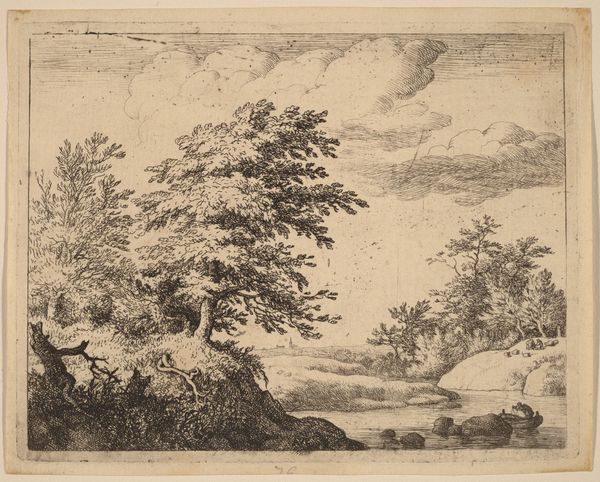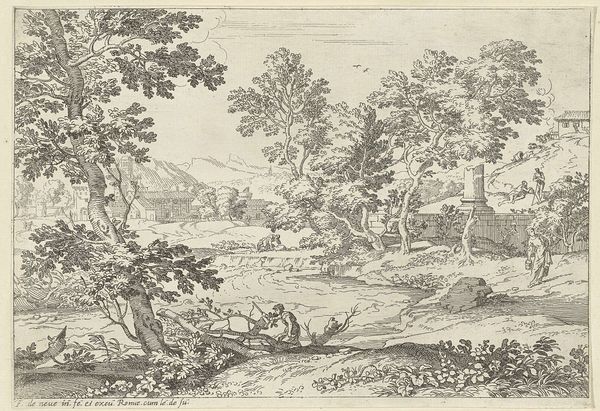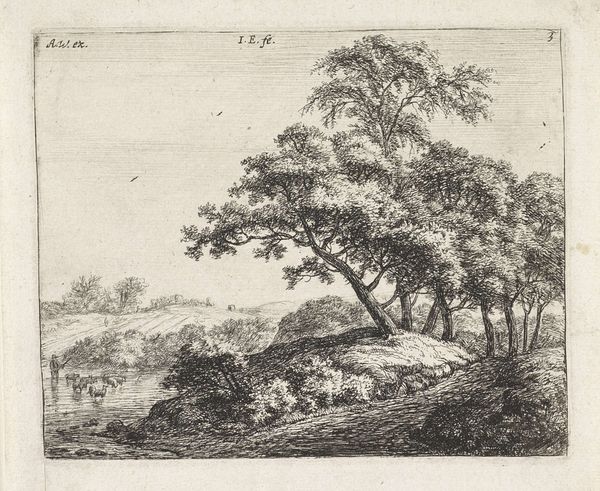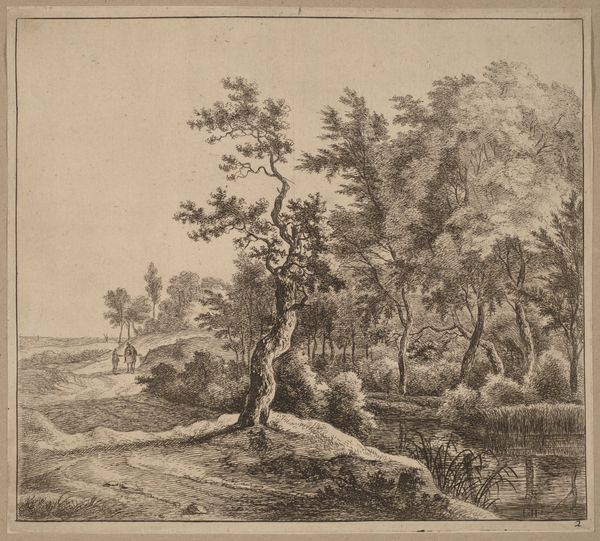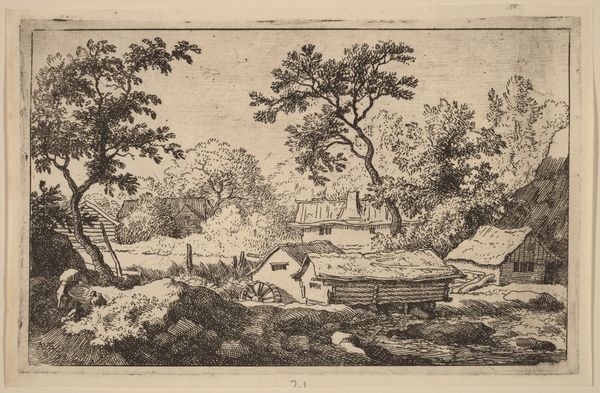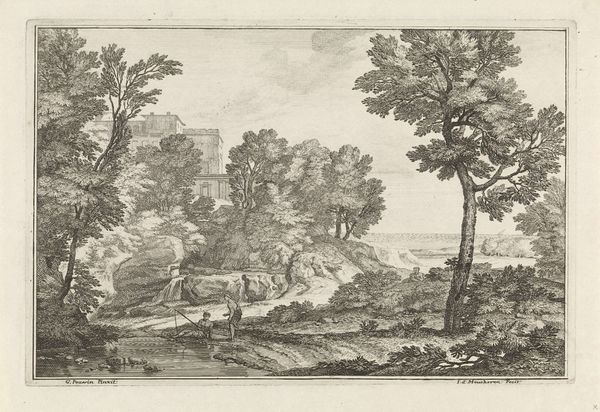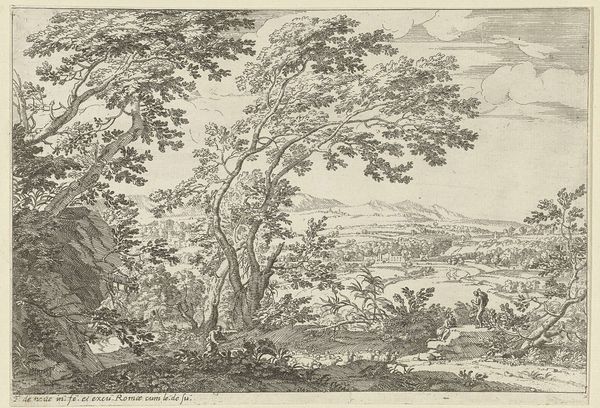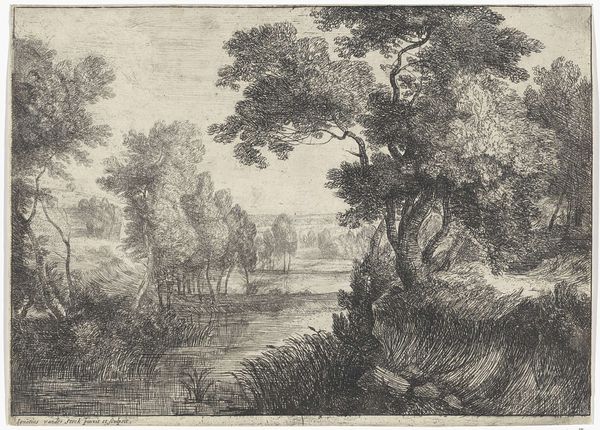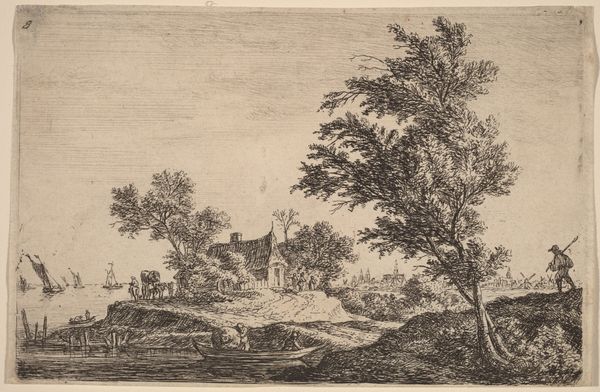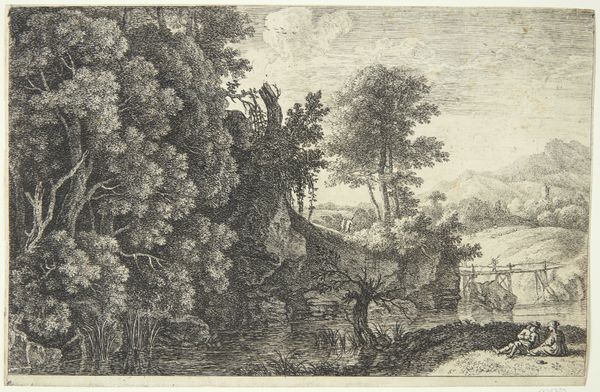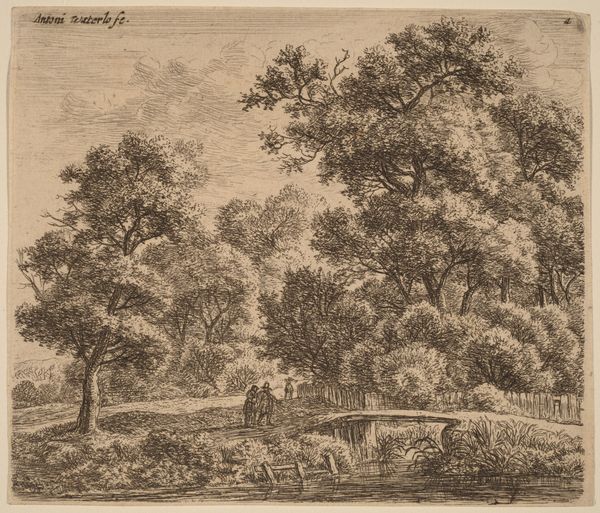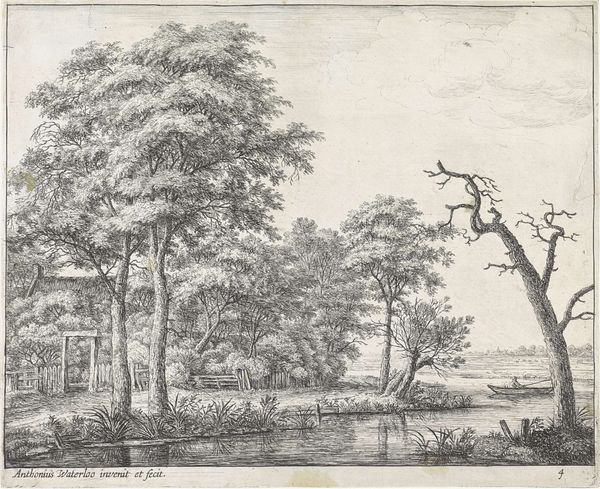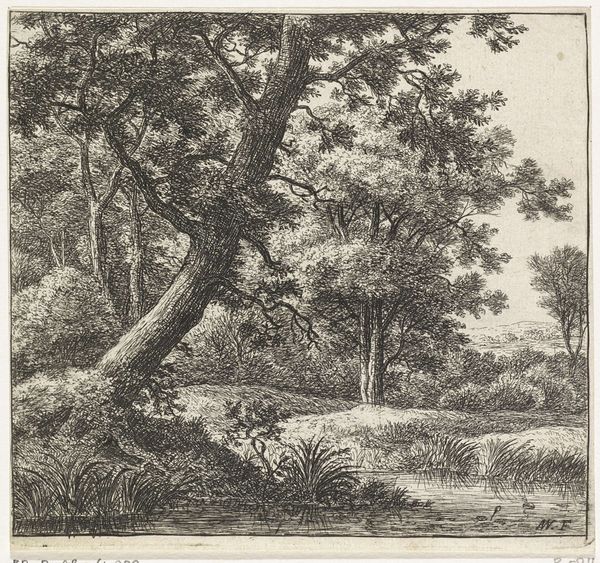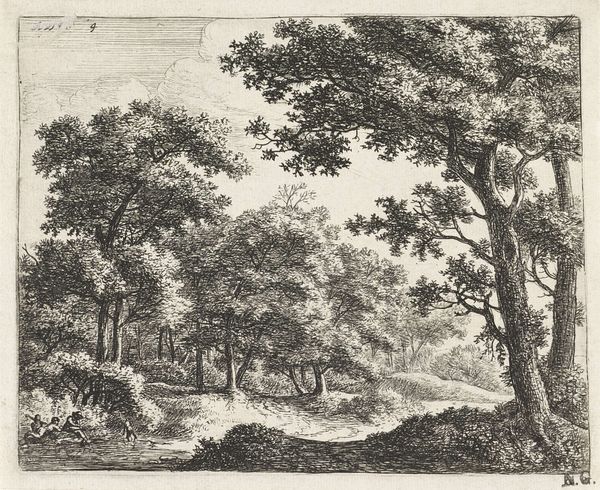
print, etching
#
dutch-golden-age
# print
#
etching
#
landscape
#
line
#
realism
Copyright: National Gallery of Art: CC0 1.0
Anthonie Waterloo created “Planks Attached to Four Trees” as an etching in the Netherlands sometime in the mid-17th century. This was a period known as the Dutch Golden Age, when the newly independent nation experienced an unprecedented flourishing of commerce, science, and the arts. Waterloo's bucolic scene reflects both the economic realities and the cultural values of the time. The modest plank bridge suggests the infrastructure that supported trade and travel, while the four trees evoke the Dutch Republic’s deep connection to its natural landscape. The distant views allude to the era's burgeoning global trade networks. The image is a product of a sophisticated printmaking industry that served an expanding market for affordable art. Artists responded to the tastes of a prosperous middle class, whose tastes celebrated both the beauty and the bounty of their land. Through works like this one, we can appreciate the role that art played in shaping Dutch national identity. Careful study of this period reveals the intricate relationship between economics, culture, and artistic expression.
Comments
No comments
Be the first to comment and join the conversation on the ultimate creative platform.
